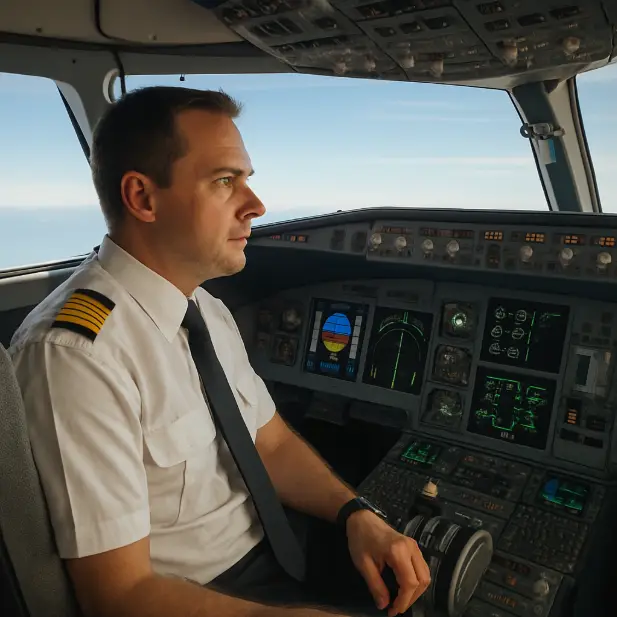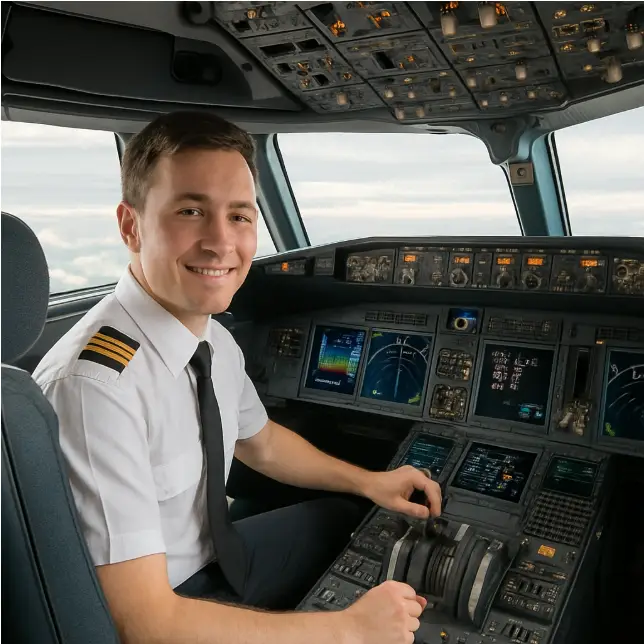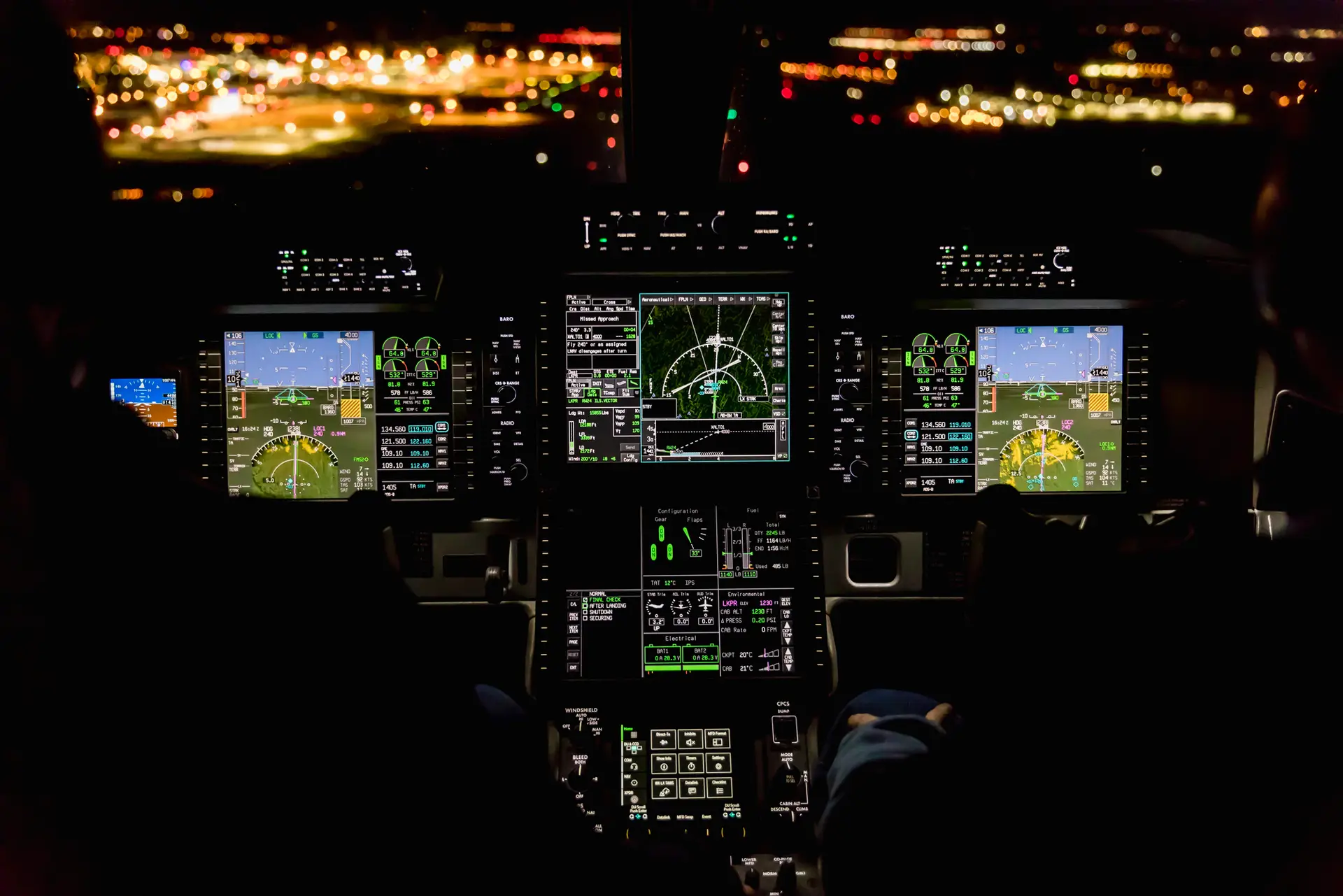2025 Commercial Pilot Interview Prep Guide
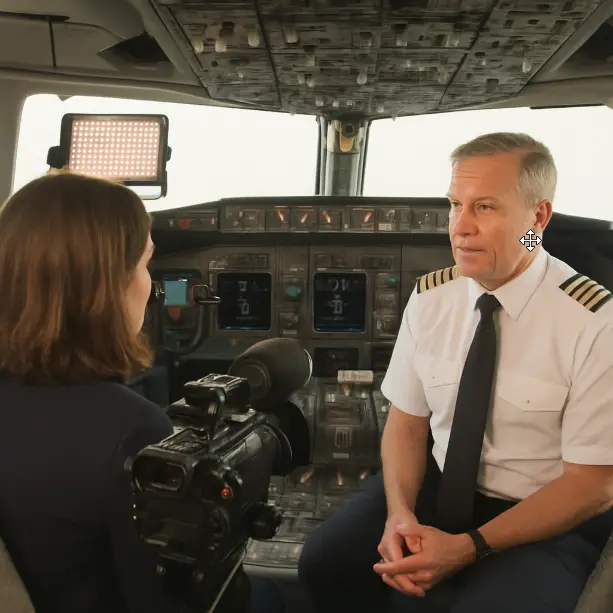
- aviatorpro_6714
Securing a position as a commercial pilot with a major airline is a dream for many aviators. However, the journey to getting hired involves navigating the often daunting process of airline interviews. As we look ahead to 2025, it’s crucial for aspiring pilots to be well-prepared. This guide will walk you through the essentials of airline interview preparation, common pilot interview questions, and how to present yourself as the ideal candidate.
Before you can ace an interview, it’s important to understand the process. Typically, airline interviews consist of multiple stages, including:
Initial Screening: First Impressions Matter
The initial screening is your first opportunity to make a lasting impression. This stage typically includes an online application and often a phone interview. The goal is to assess your basic qualifications, such as flight hours and certifications. It’s important to ensure your resume is up to date and tailored to the specific airline you’re applying to. Highlight relevant experiences and skills that align with the airline’s values and needs.
Technical Interview: Showcasing Your Aviation Knowledge
The technical interview is where you’ll demonstrate your aviation expertise. This part tests your knowledge of aircraft systems, weather patterns, and flight planning. Expect questions that challenge your problem-solving skills and your ability to think on your feet. Review technical manuals and stay current with industry standards to ensure you can confidently answer any technical queries.
HR Interview: Personality and Cultural Fit
In the HR interview, airlines assess your interpersonal skills and how well you fit into their corporate culture. This stage focuses on your teamwork capabilities, leadership experience, and adaptability. Be prepared to discuss past experiences where you’ve demonstrated these qualities. Practicing with a friend or mentor can help you articulate your responses clearly and confidently.
Simulator Assessment: Practical Flying Skills
The simulator assessment is a critical component of the interview process. It evaluates your practical flying skills and your ability to handle in-flight emergencies. Familiarize yourself with the specific type of simulator used by the airline if possible. Practicing in advance will help you manage stress and perform under pressure, showcasing your competency as a pilot.
Getting Ready: Key Preparation Steps
Research the Airline: Delve Deeper
Researching the airline is a fundamental step in your interview preparation. Go beyond the basics of the airline’s mission and values. Investigate their corporate culture, recent achievements, and any challenges they face. Understanding these facets allows you to tailor your responses and demonstrate your genuine interest in the airline. Additionally, this knowledge can help you ask insightful questions during your interview, showing your enthusiasm and preparedness.
Review Common Pilot Interview Questions: Anticipate and Prepare
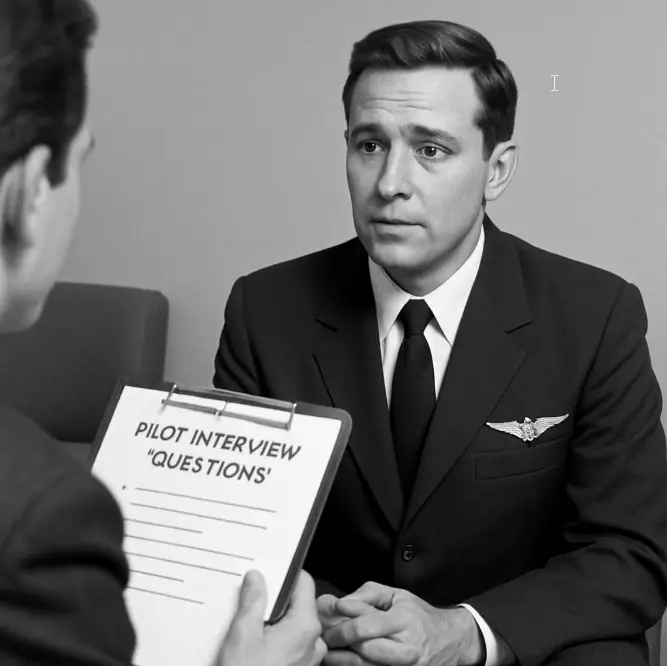
Familiarizing yourself with common interview questions can significantly boost your confidence. Prepare responses for a variety of scenarios, such as handling emergency situations, resolving conflicts with crew members, and ensuring passenger safety and comfort. Use the STAR method (Situation, Task, Action, Result) to structure your answers, ensuring they are concise yet comprehensive. Practicing these responses with a colleague or mentor can help refine your delivery and build confidence.
Brush Up on Technical Knowledge: Stay Informed
Airline interviews often include technical questions to assess your aviation knowledge. Revisit key topics such as aircraft systems, weather phenomena, and navigation. Stay updated with the latest developments in aviation technology and regulatory changes. Utilize online courses, webinars, and industry publications to keep your knowledge current. This not only prepares you for the technical interview but also demonstrates your commitment to professional development.
Simulator Assessment: Flying Under Pressure
The simulator assessment is a critical component of the interview process. To excel, practice the following:
- Familiarize with the Simulator: If possible, practice on the specific type of simulator used by the airline. Understanding the controls and layout can give you a confidence boost during the actual assessment.
- Review Emergency Procedures: Be well-versed in handling in-flight emergencies, as these are often tested. Practice scenarios such as engine failures, rapid decompression, and other critical situations.
- Stay Calm Under Pressure: The ability to maintain composure during unexpected scenarios is essential. Practice relaxation techniques and stress management strategies to help you stay focused and calm.
Regular practice and a calm mindset will help you perform confidently in the simulator assessment.
Presenting Yourself as the Ideal Candidate
Professionalism and Appearance: Making a Strong First Impression
First impressions matter. Dress professionally, maintain good posture, and exude confidence. Your appearance should reflect the airline’s standards and the high level of professionalism expected from a commercial pilot. Pay attention to grooming details, such as a neat hairstyle and polished shoes. Your attire should be conservative and align with the airline’s dress code, demonstrating your respect for the company’s image and culture.
Communication Skills: Clarity and Confidence
Effective communication is vital for pilots. During the interview, demonstrate your ability to communicate clearly and confidently. Practice active listening and articulate your thoughts in a structured manner. Being able to convey complex information succinctly and effectively is crucial, especially in high-pressure situations. Engage in public speaking or communication workshops to enhance your verbal and non-verbal communication skills.
Teamwork and Adaptability: Collaboration and Flexibility
Airlines value pilots who can work well with others and adapt to dynamic situations. Share examples of past experiences where you collaborated effectively with a team and adapted to challenging circumstances. Highlight situations where you took initiative or supported colleagues, demonstrating your leadership potential and flexibility. This not only shows your ability to work in a team environment but also underscores your problem-solving skills.
Staying Informed: Industry Trends in 2025

by Kanyapa Dechthanathorn (https://unsplash.com/@mint_mint)
The aviation industry is constantly evolving. Staying informed about current trends and future projections can set you apart as a knowledgeable candidate. In 2025, consider focusing on:
Sustainability Initiatives: Embracing Eco-Friendly Practices
Understanding an airline’s efforts towards reducing carbon emissions and promoting eco-friendly practices is crucial. Familiarize yourself with industry sustainability goals and initiatives, such as the use of sustainable aviation fuels and improvements in aircraft efficiency. Highlighting your knowledge of these topics during interviews can demonstrate your commitment to supporting the airline’s environmental goals.
Technological Advancements: Navigating New Innovations
Familiarize yourself with advancements in aviation technology, such as new aircraft models, navigation systems, and automation. Understanding how these innovations impact flight operations and safety can give you an edge in interviews. Discussing your ability to adapt to technological changes shows your readiness to embrace the future of aviation and contribute to the airline’s success.
Regulatory Changes: Staying Compliant and Informed
Keep updated on any regulatory changes that may impact commercial pilots. This includes changes in safety regulations, pilot training requirements, and airspace management. Being aware of these changes shows your commitment to maintaining compliance and ensuring safe flight operations. It also illustrates your proactive approach to staying informed about industry developments.
Additional Tips for Success
Mock Interviews: Practice Makes Perfect
Conduct mock interviews with a mentor or fellow pilot to simulate the interview experience. This practice helps you refine your answers, build confidence, and receive constructive feedback. Mock interviews can also help you identify areas for improvement and adjust your preparation accordingly. Recording these sessions allows you to review your performance and make necessary adjustments.
Mental and Physical Well-being: Balancing Stress
Preparing for interviews can be stressful. Prioritize your mental and physical well-being by getting enough rest, exercising regularly, and practicing relaxation techniques. Mindfulness meditation, yoga, and regular physical activity can help reduce stress and improve focus. Taking care of your well-being ensures you are mentally and physically prepared for the interview process.
Networking and Mentorship: Building Valuable Connections
Connect with experienced pilots and industry professionals to gain insights and advice. Networking can open doors to valuable opportunities and mentorship. Attend aviation industry events, join professional organizations, and engage in online forums to expand your network. Building these relationships can provide you with guidance, support, and potential job leads.
Conclusion
Preparing for airline interviews as a commercial pilot in 2025 requires a well-rounded approach. By understanding the interview process, honing your technical skills, and presenting yourself as a professional, you’ll be well-equipped to succeed. Remember to stay informed about industry trends and seek continuous improvement. With dedication and preparation, you’ll be ready to take flight in your aviation career. Aspiring pilots who invest in their preparation and remain adaptable to the industry’s evolving landscape will find themselves well-positioned for success in the competitive field of commercial aviation.

